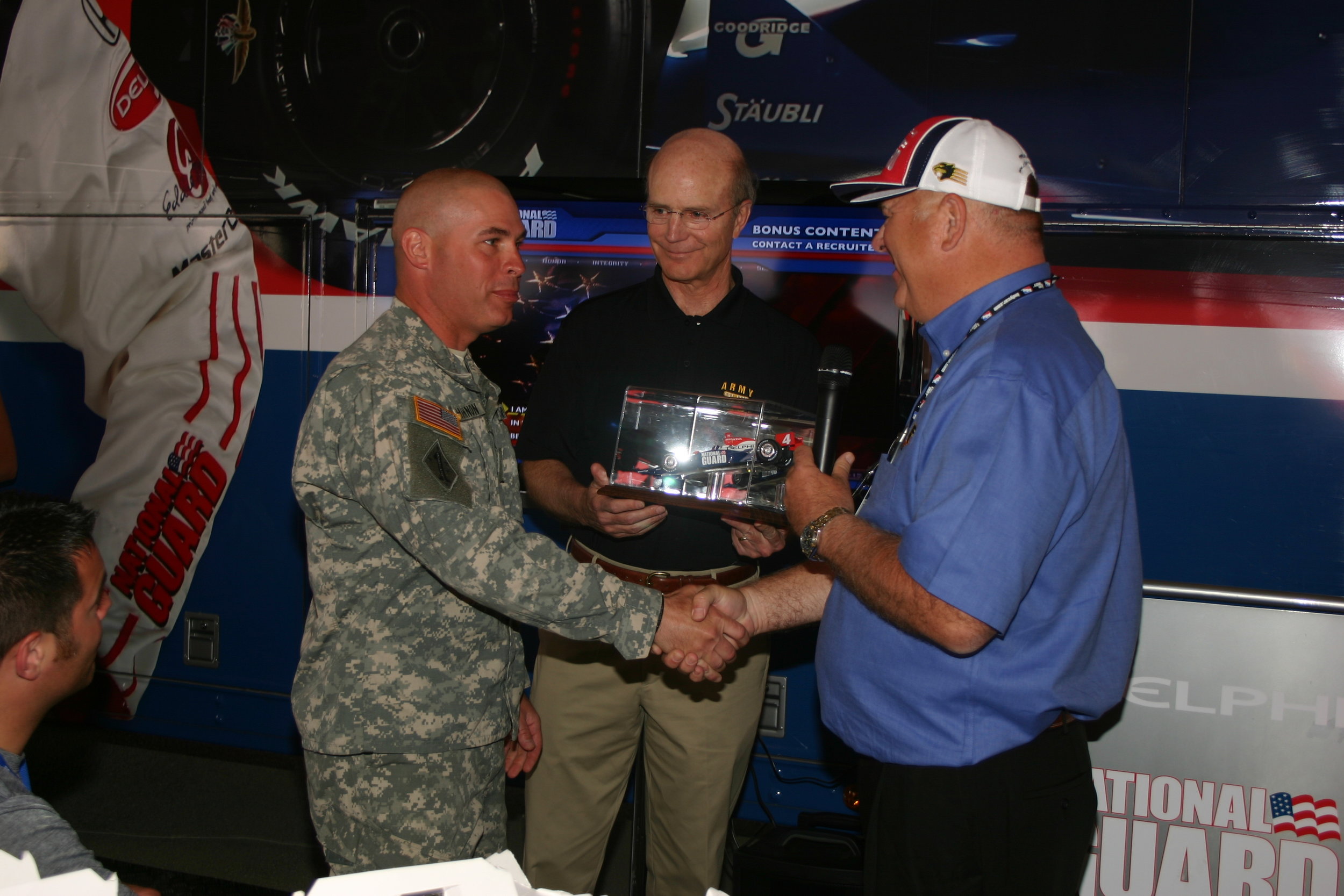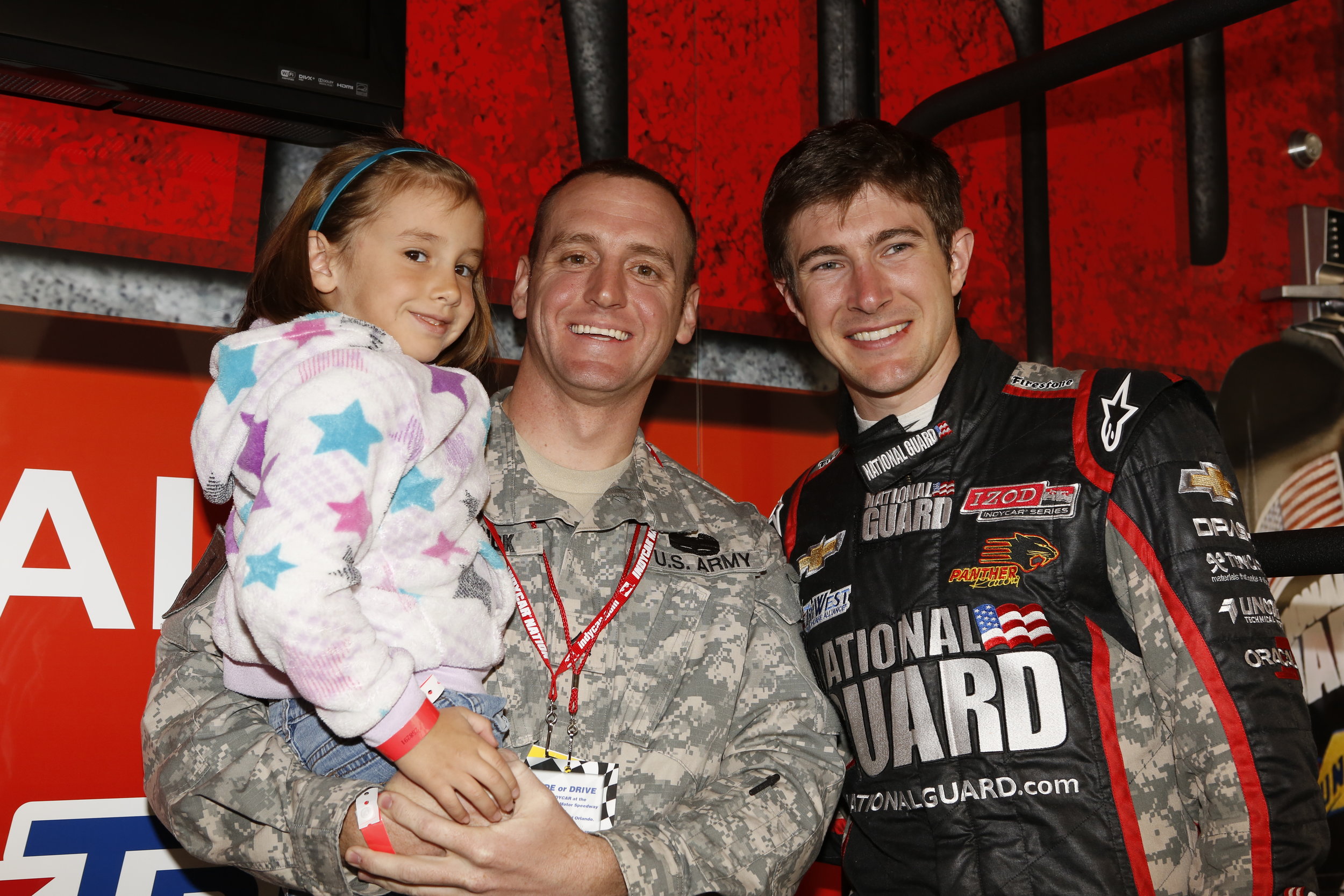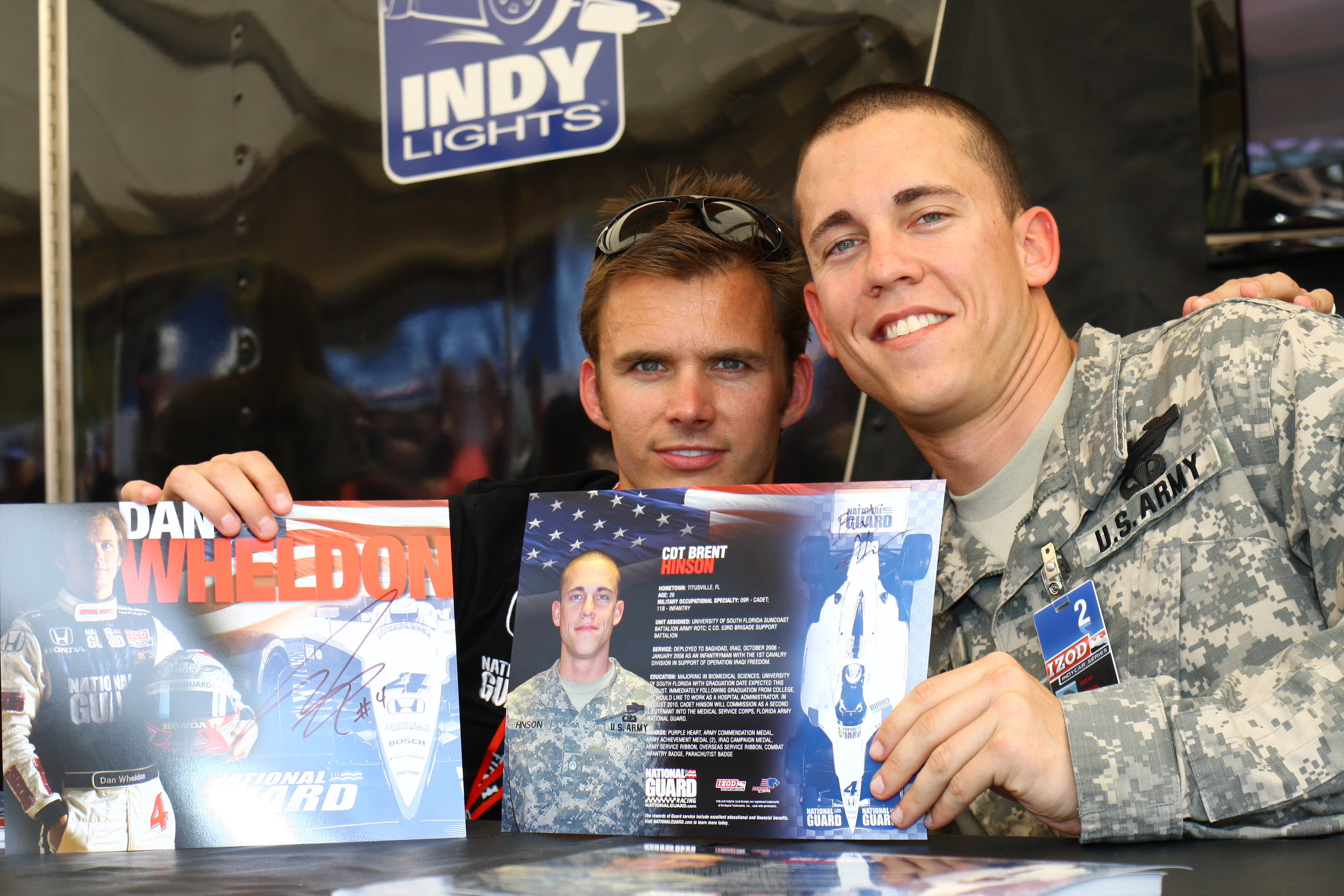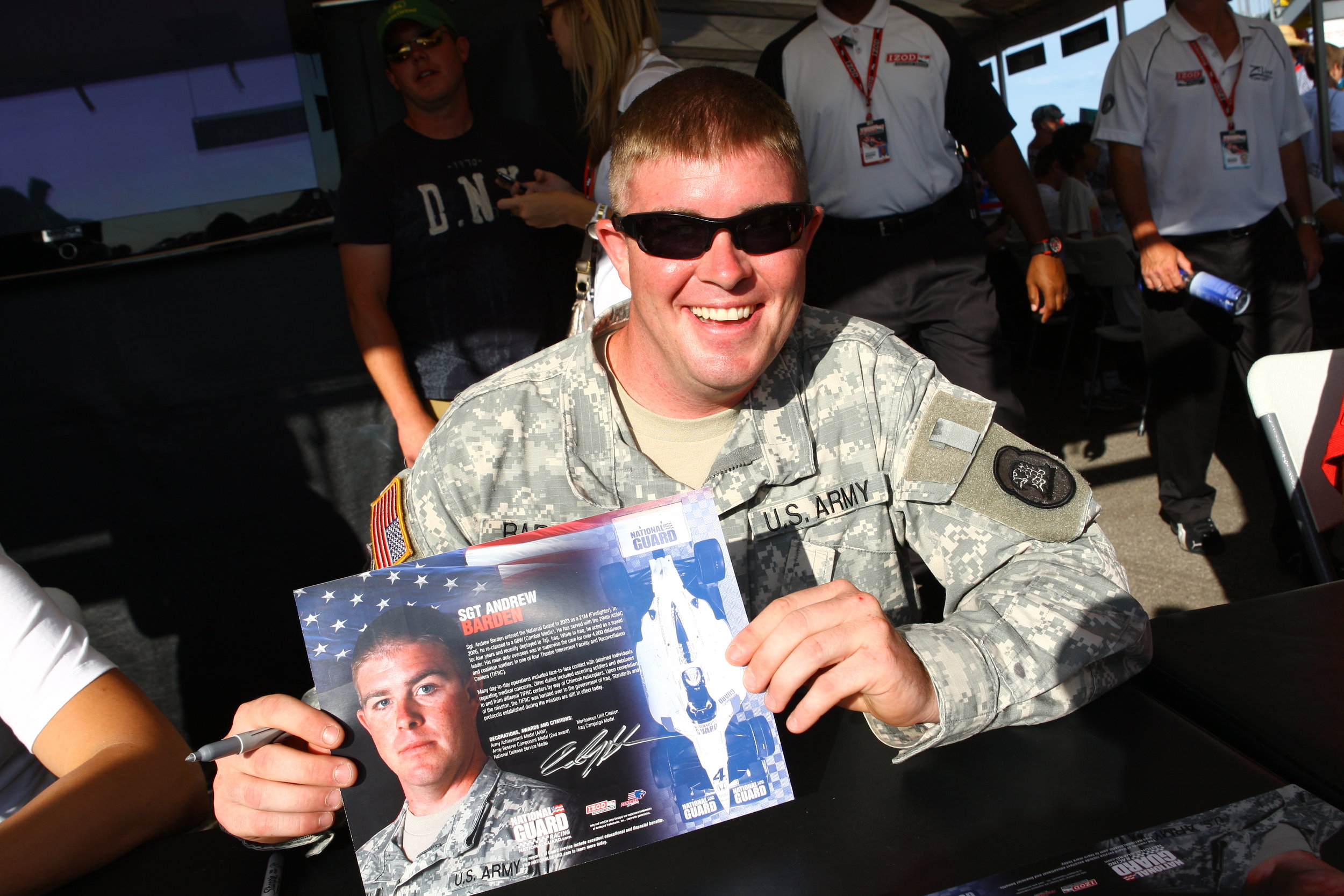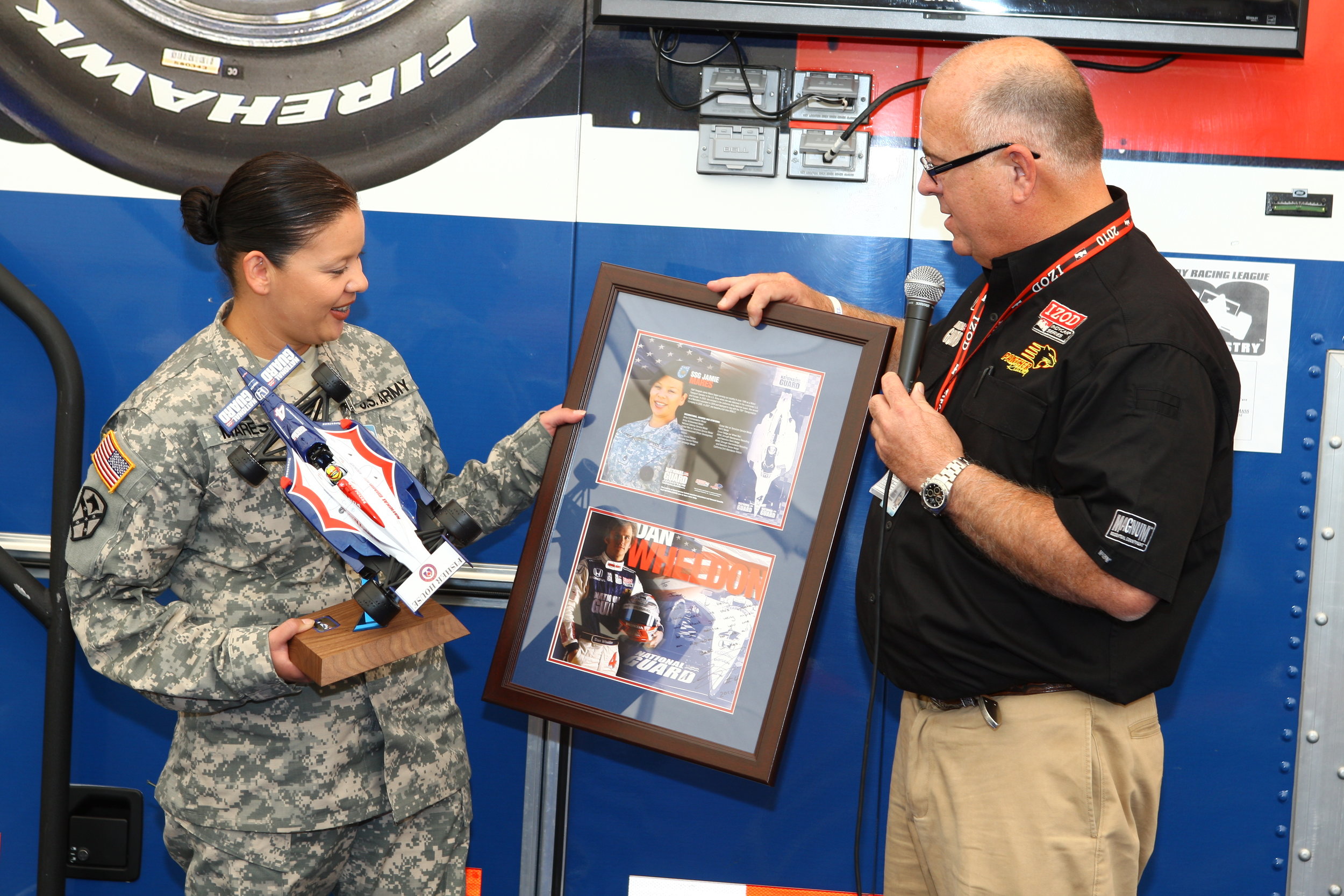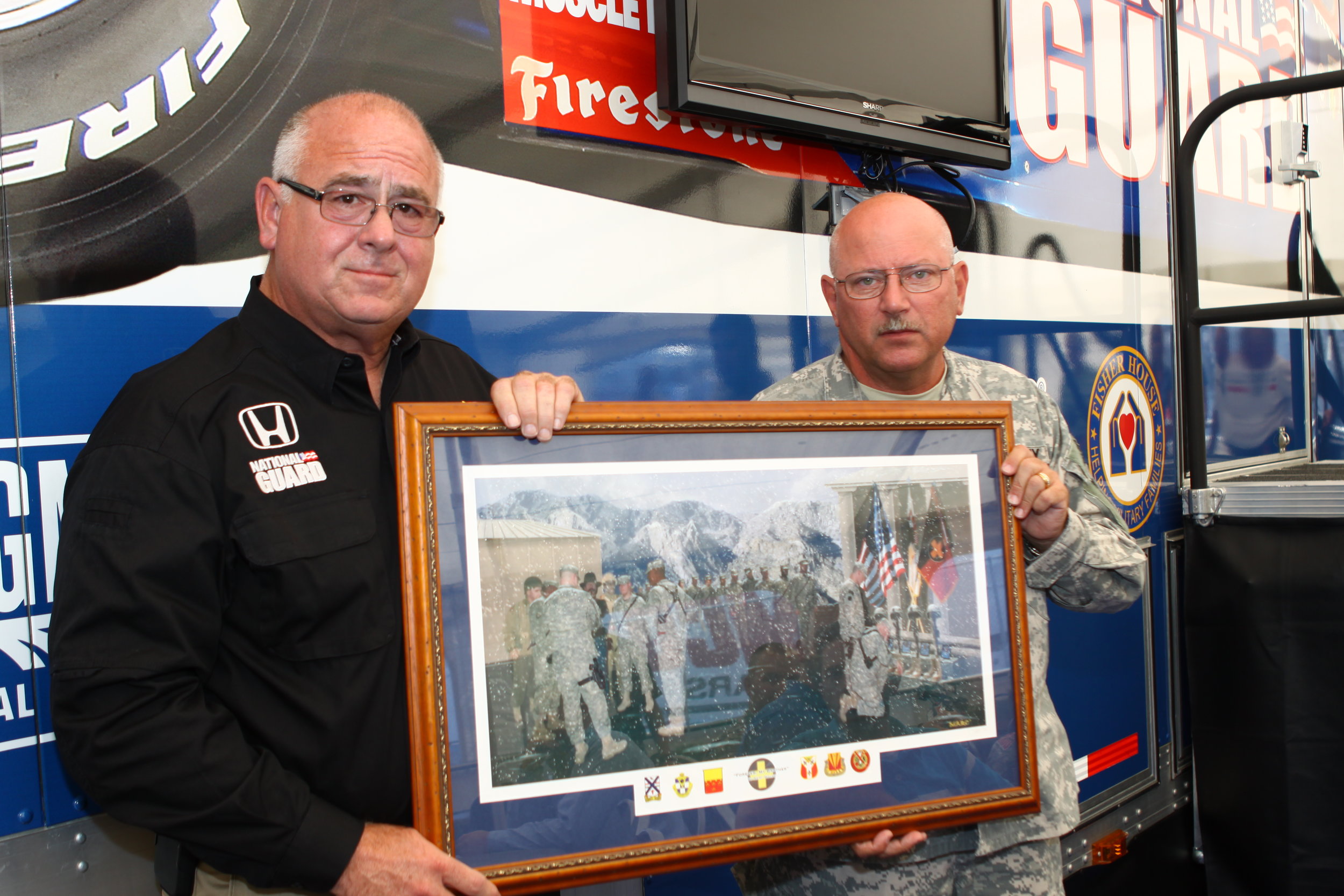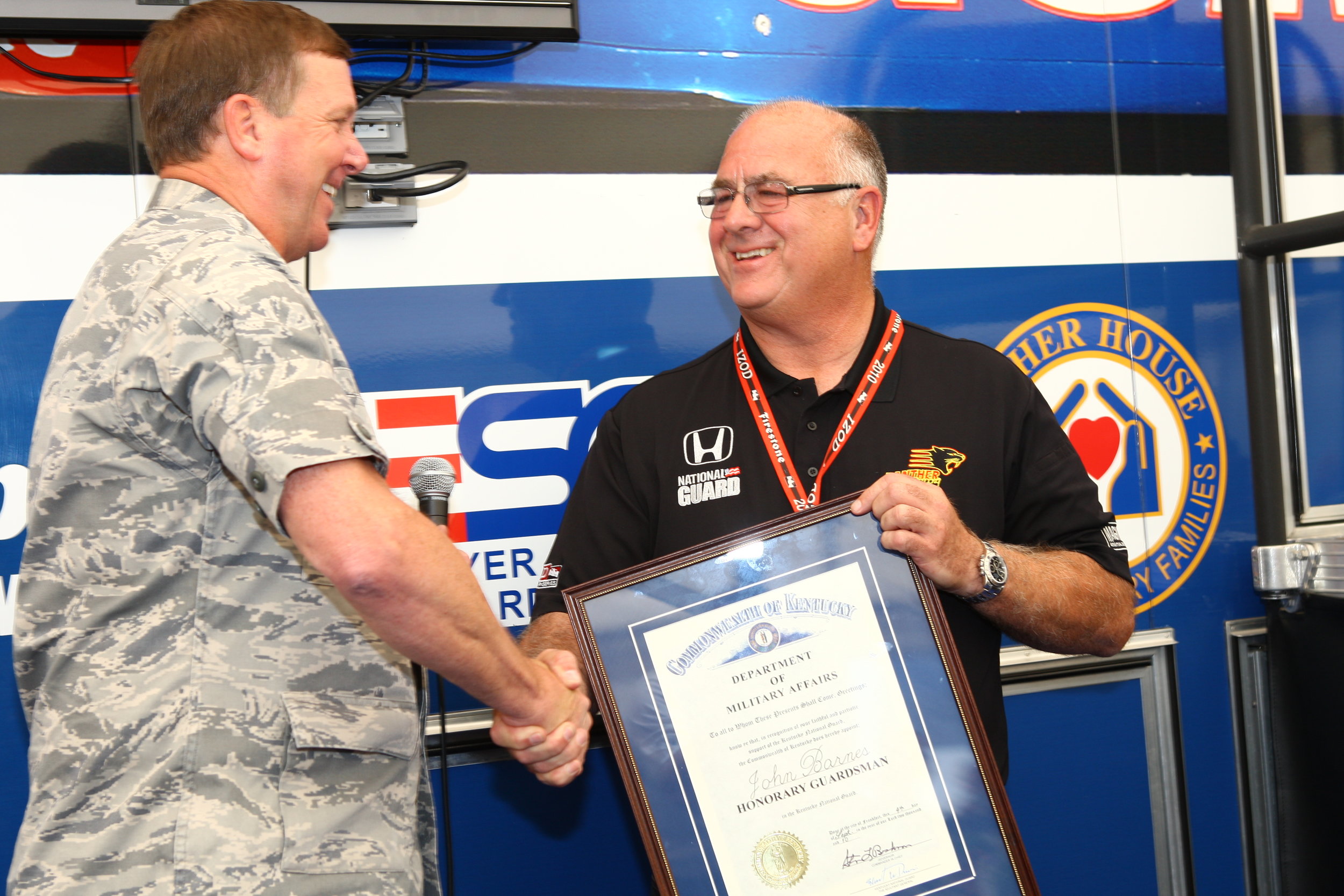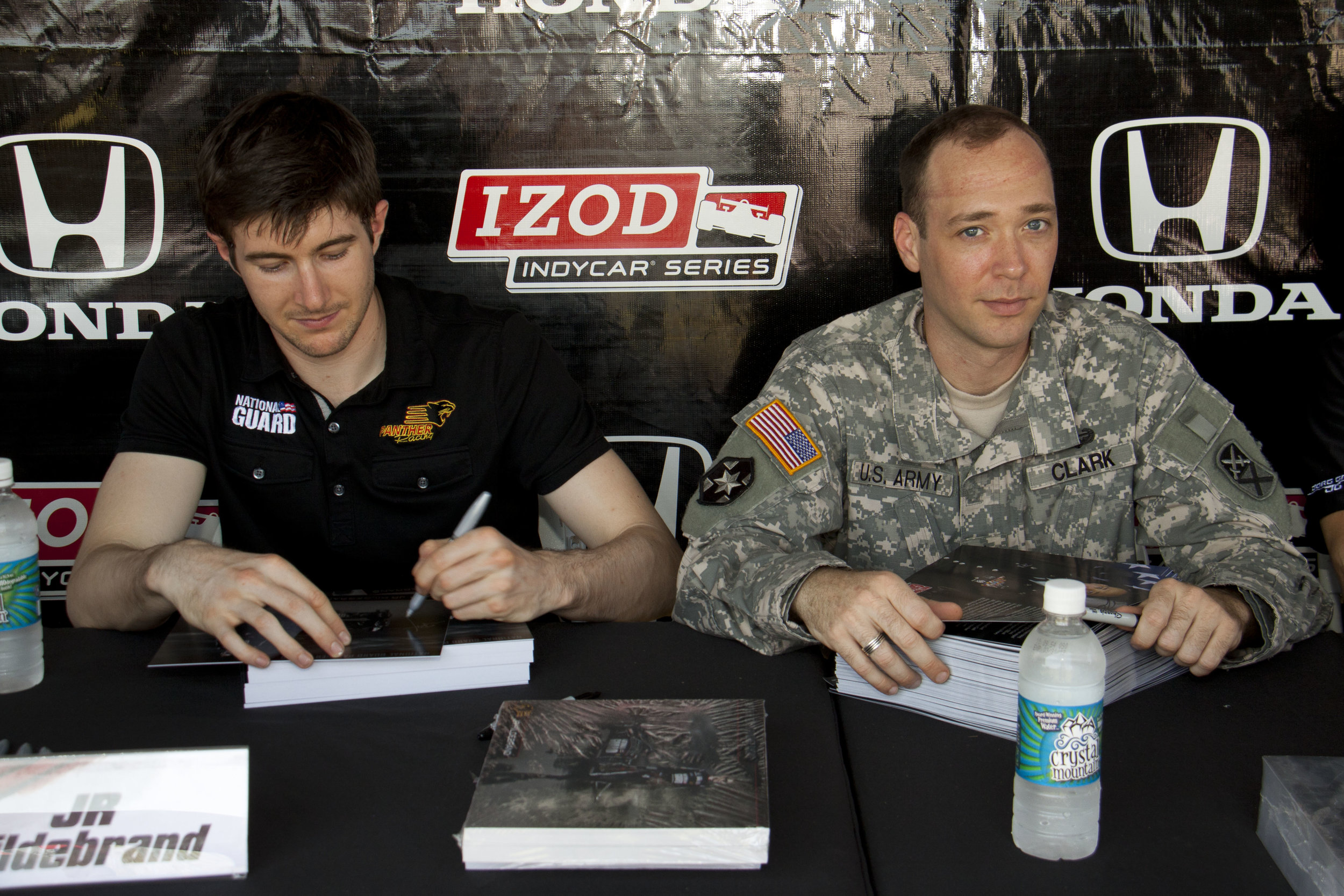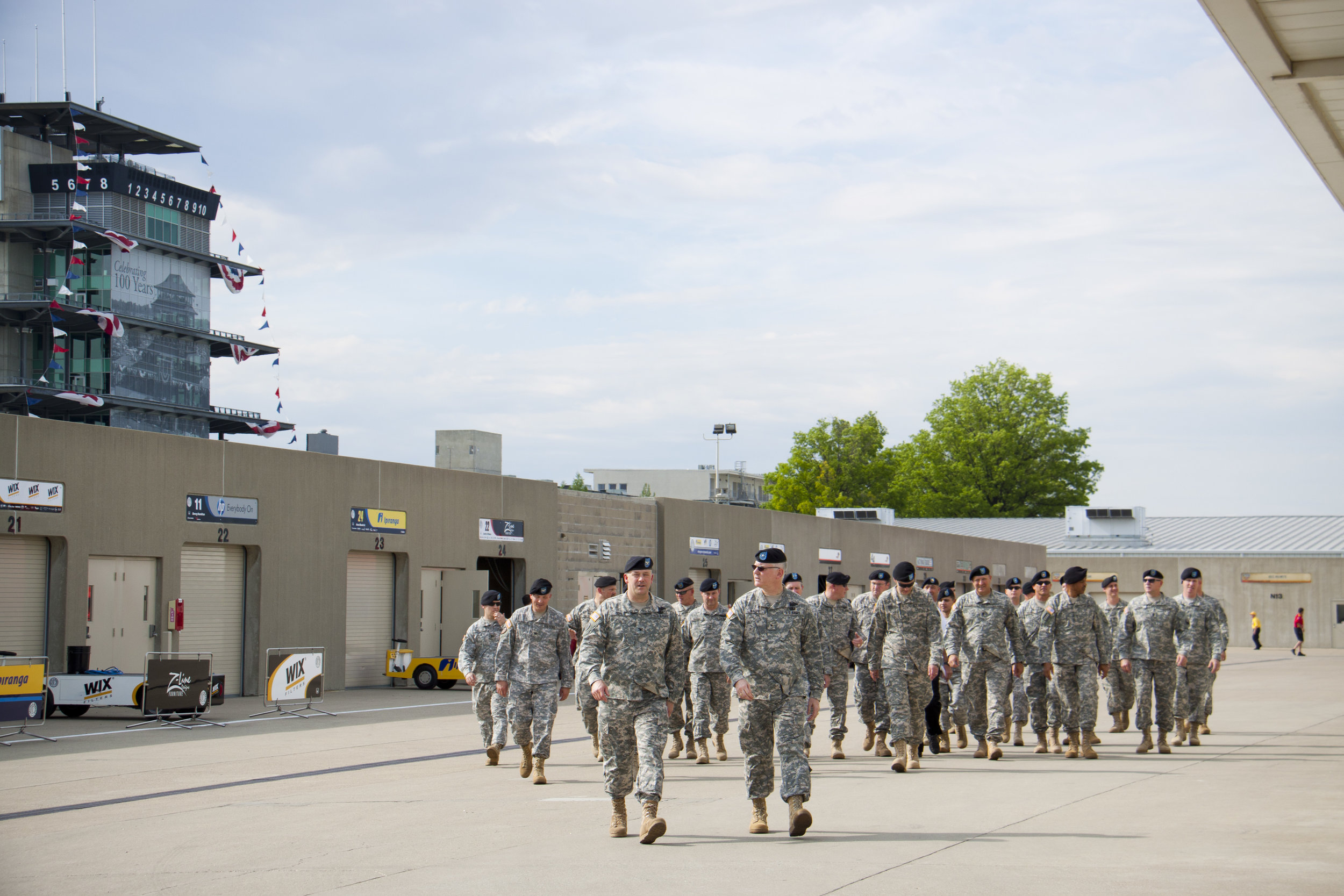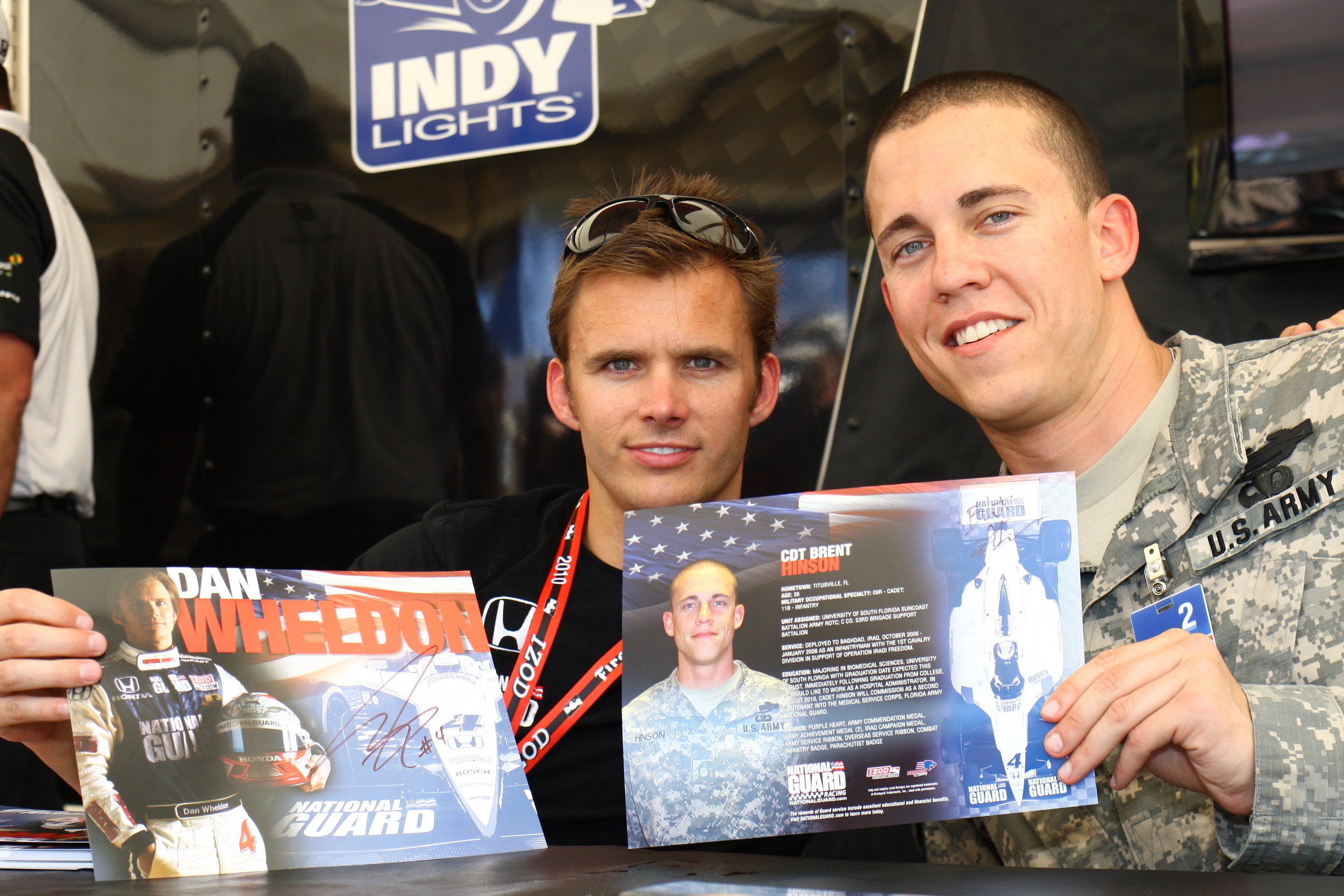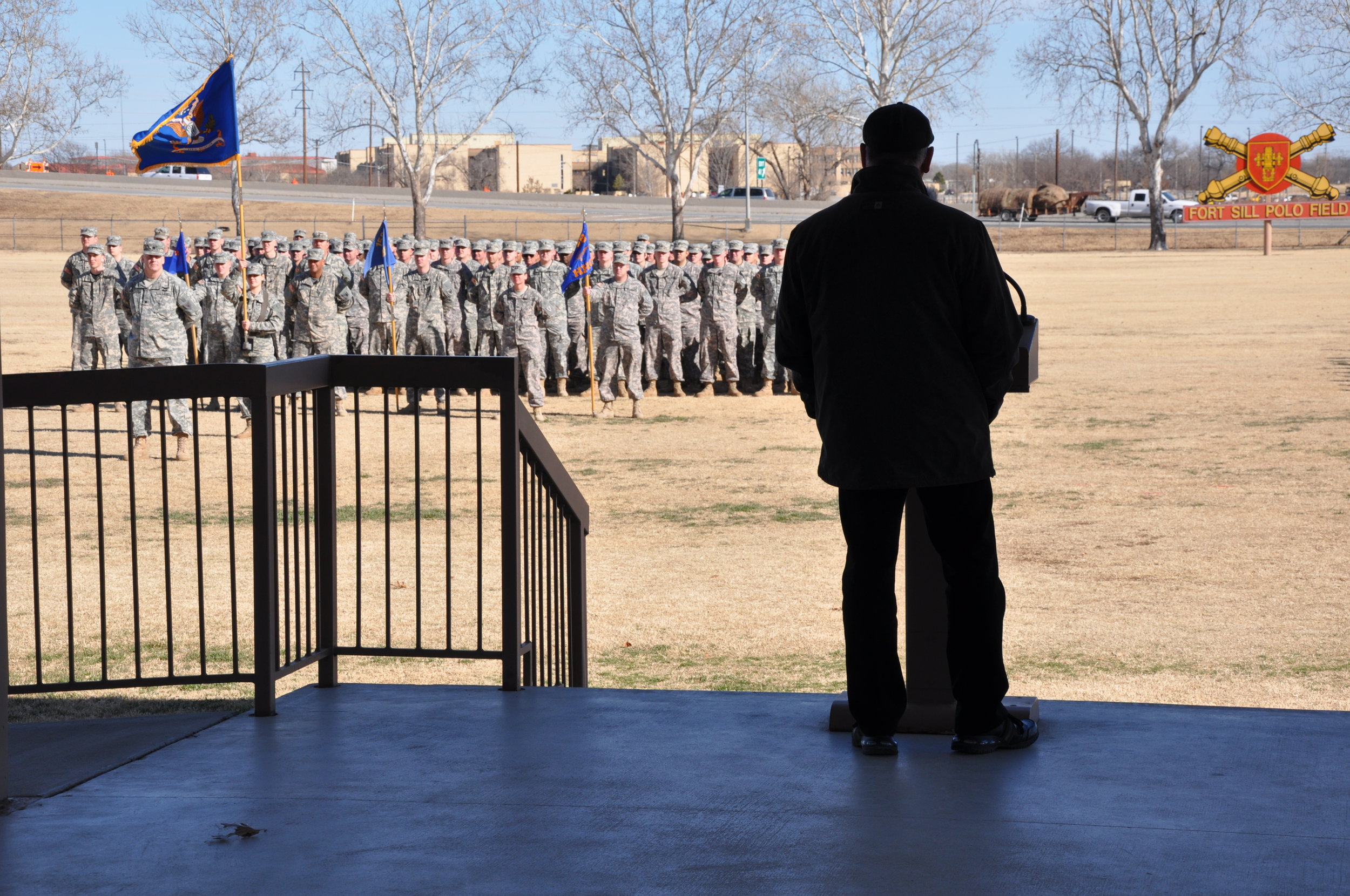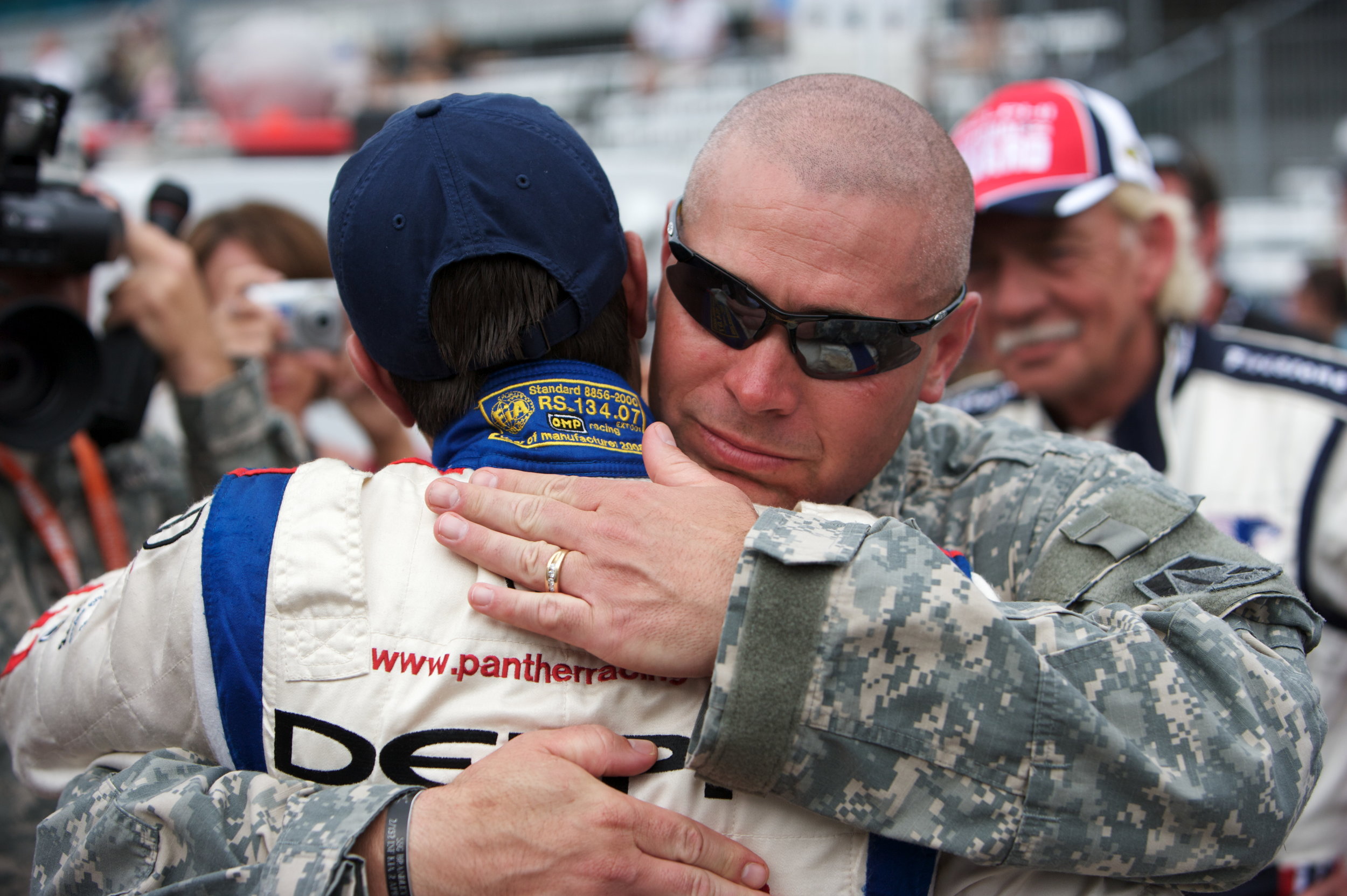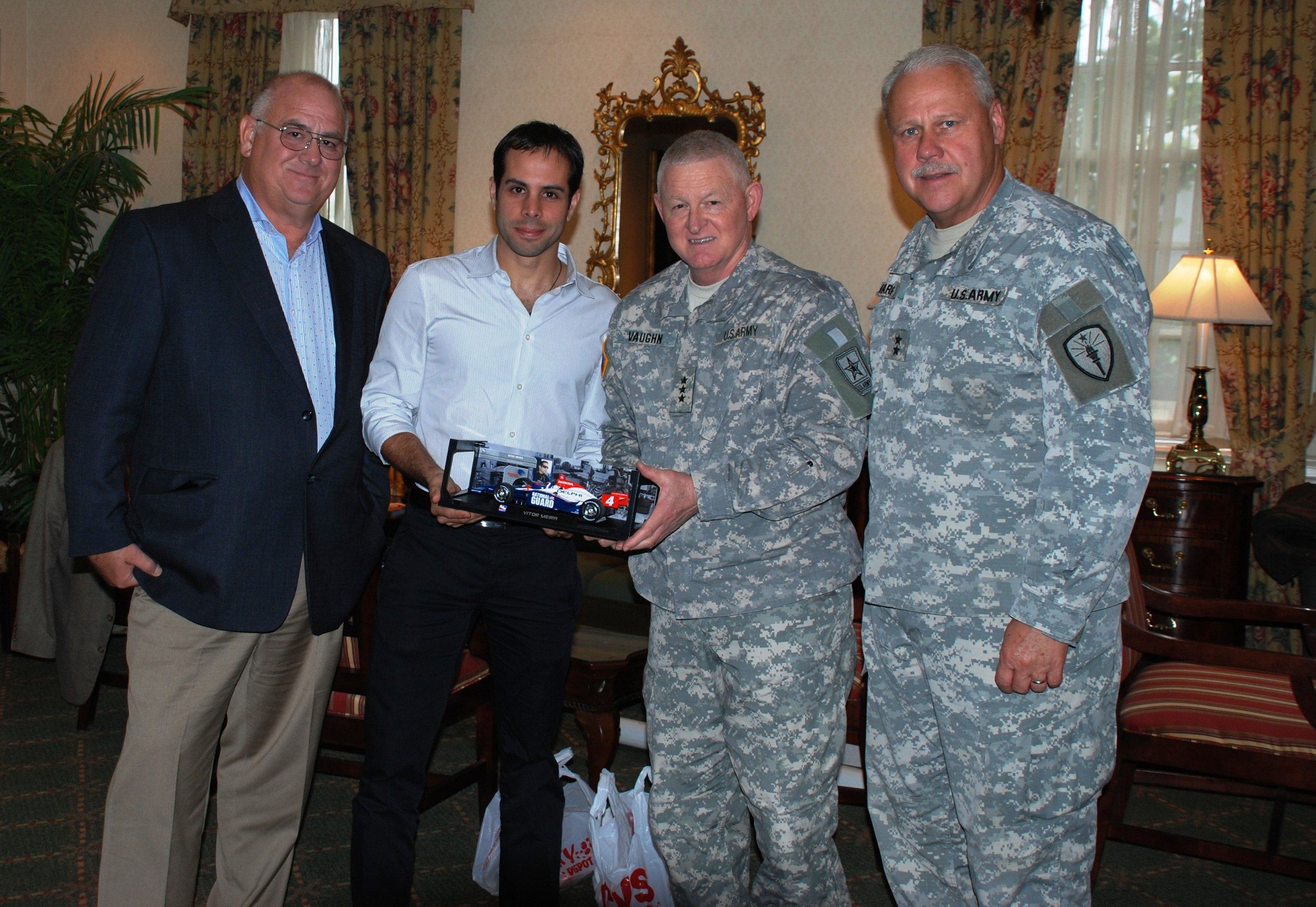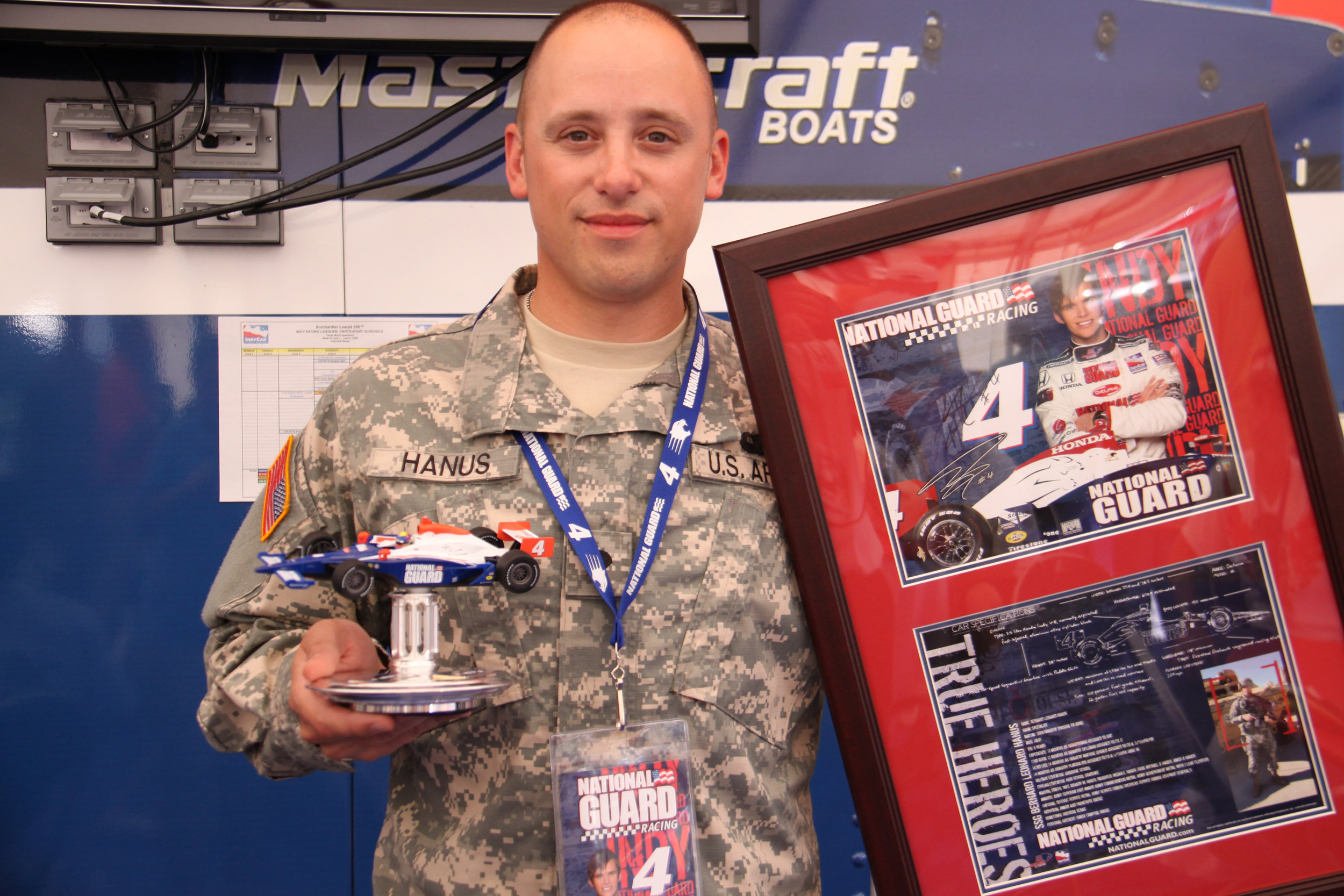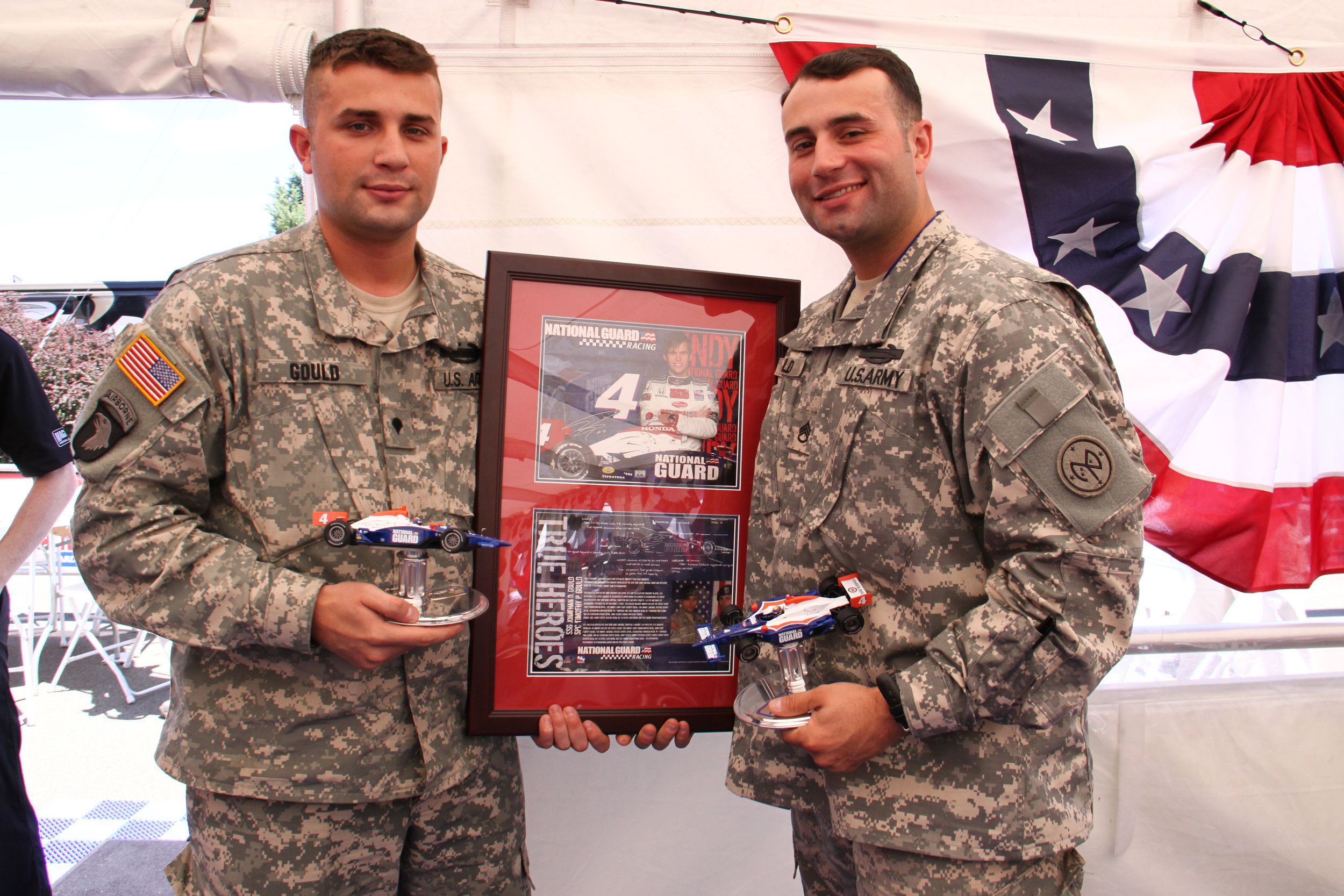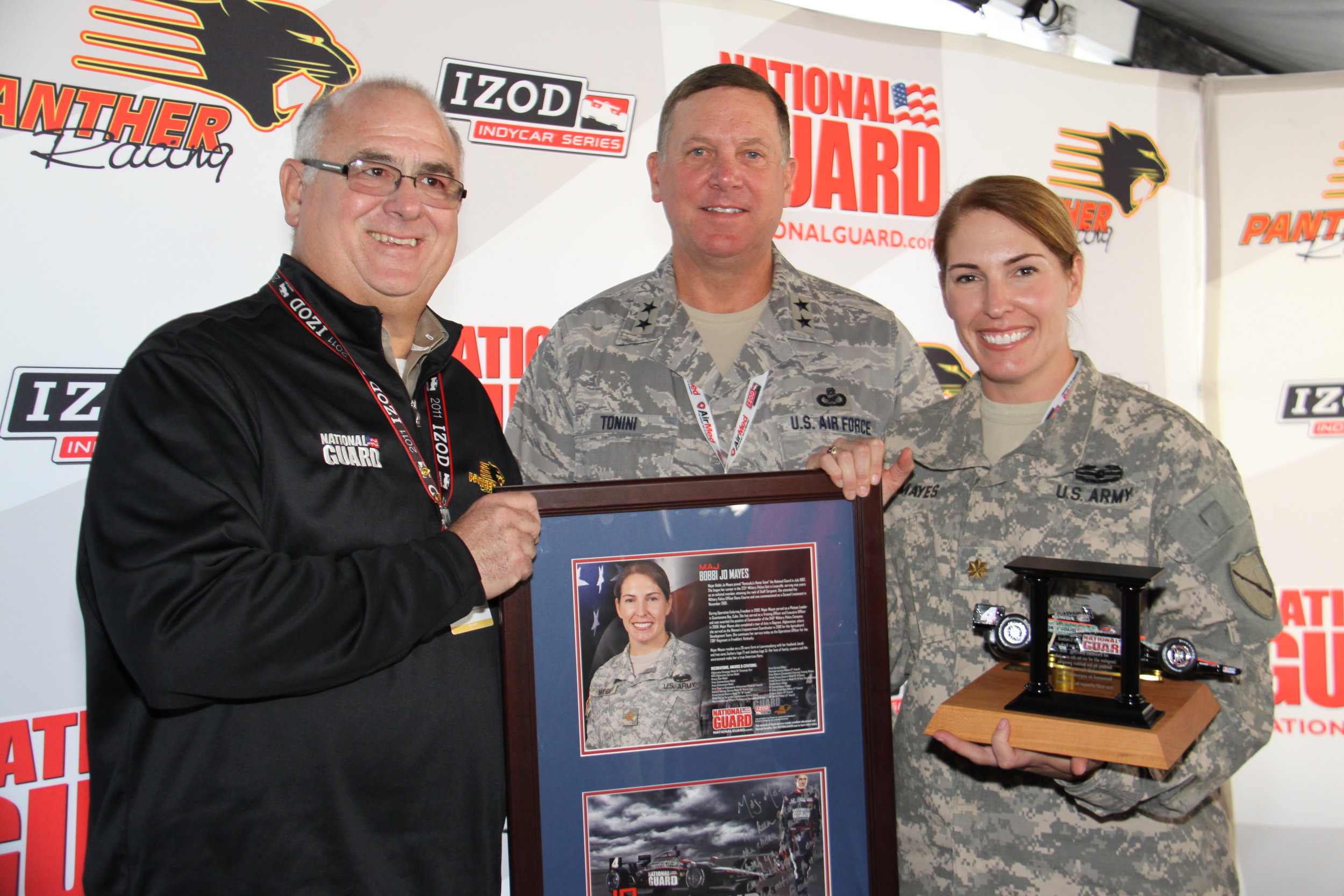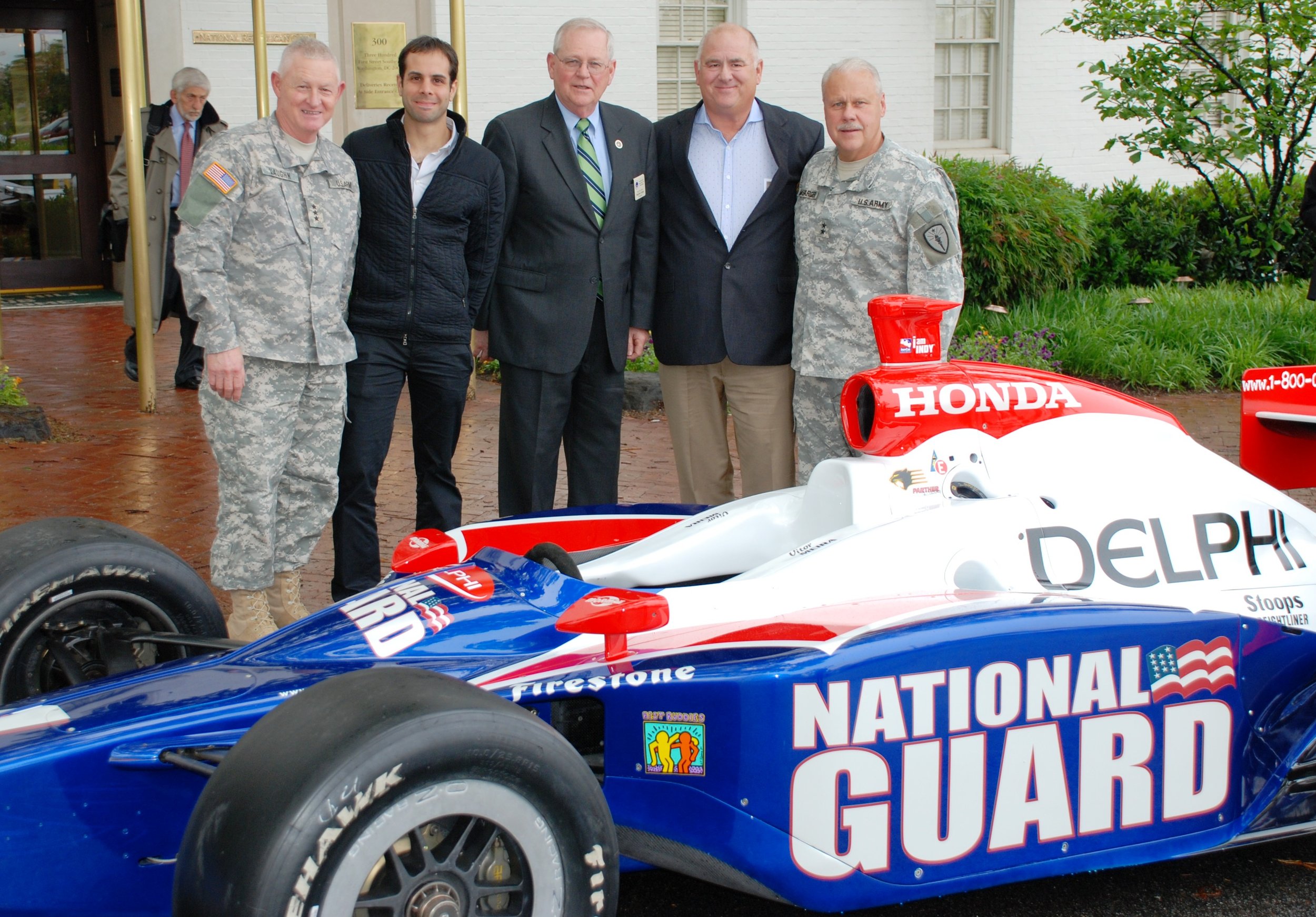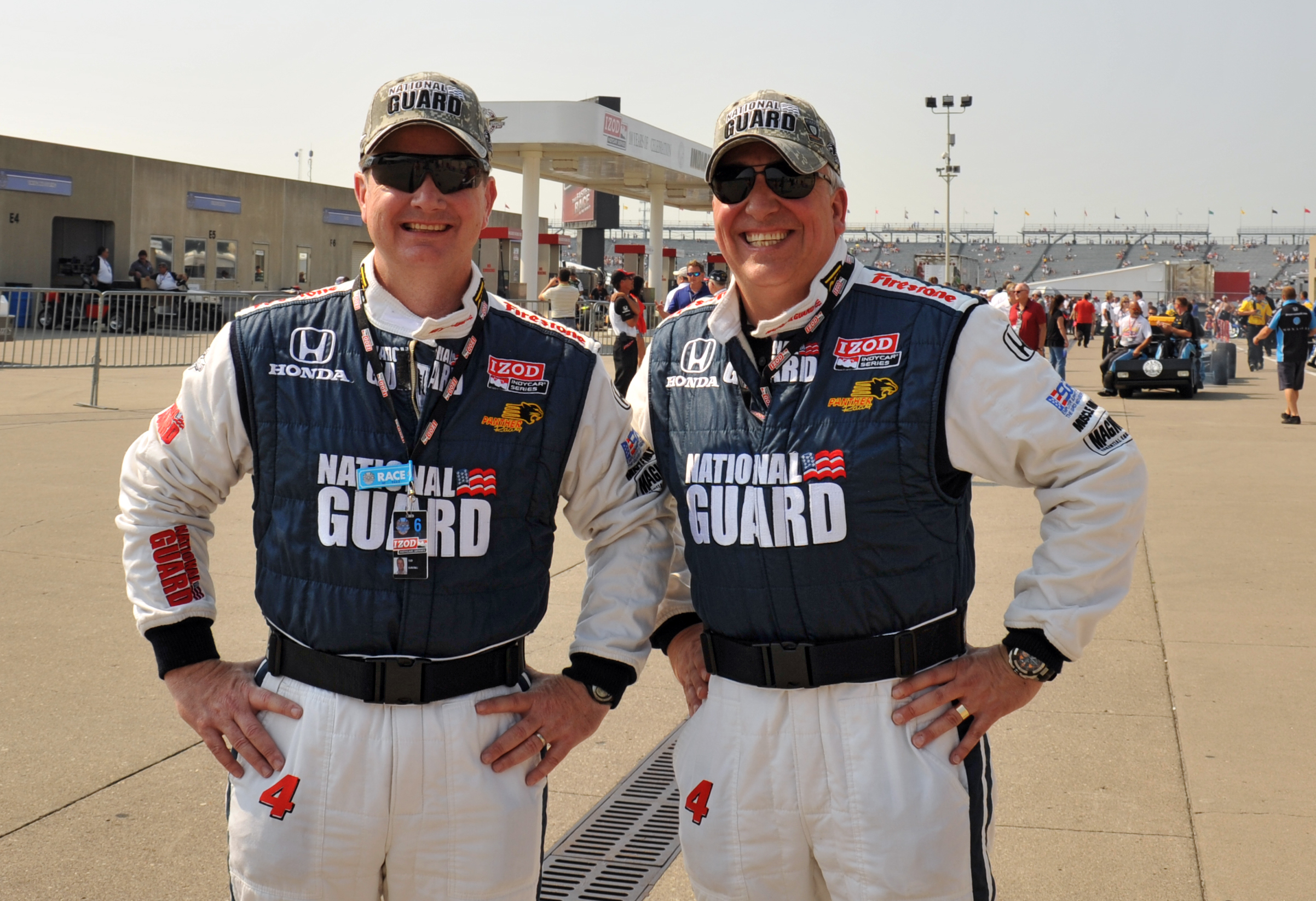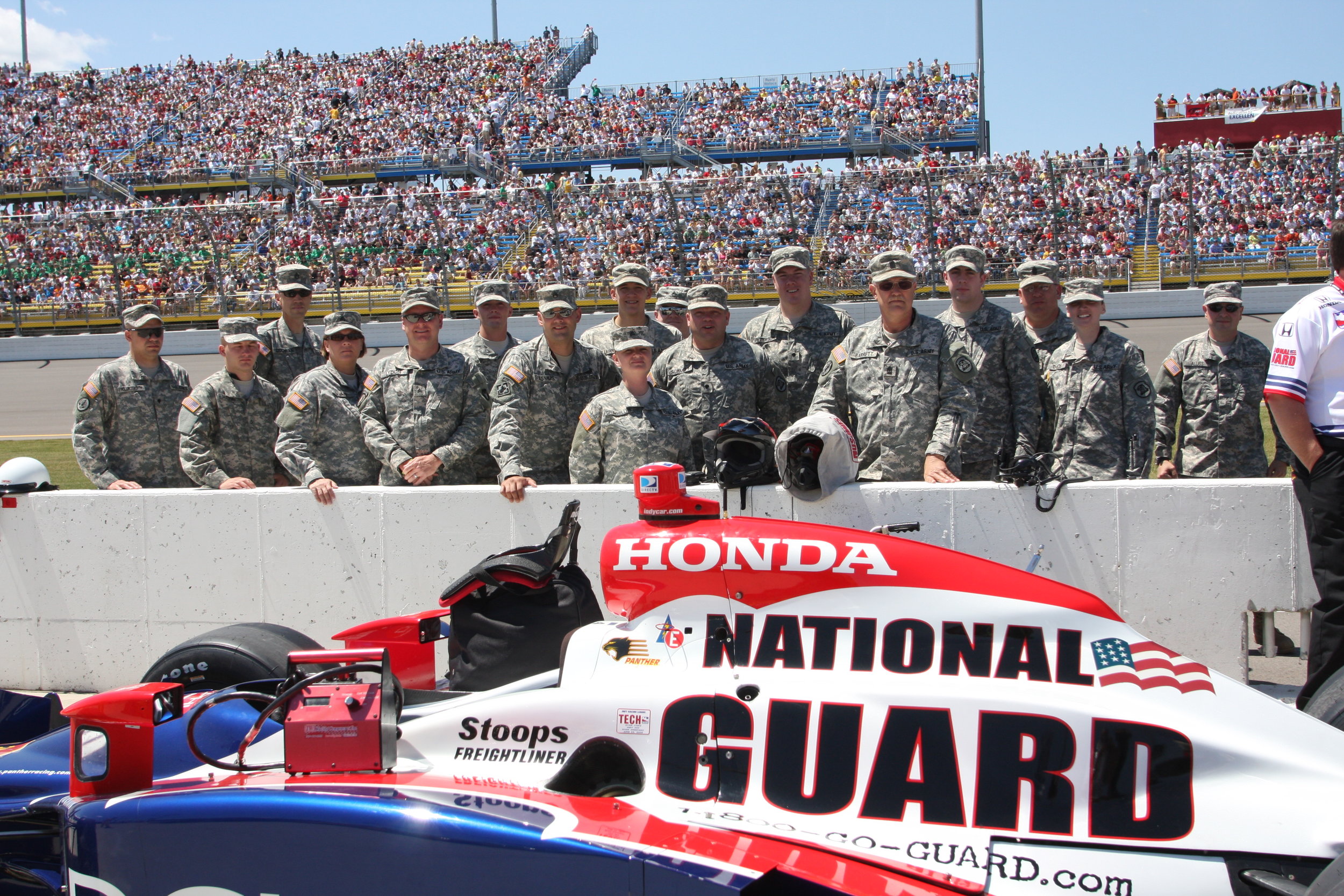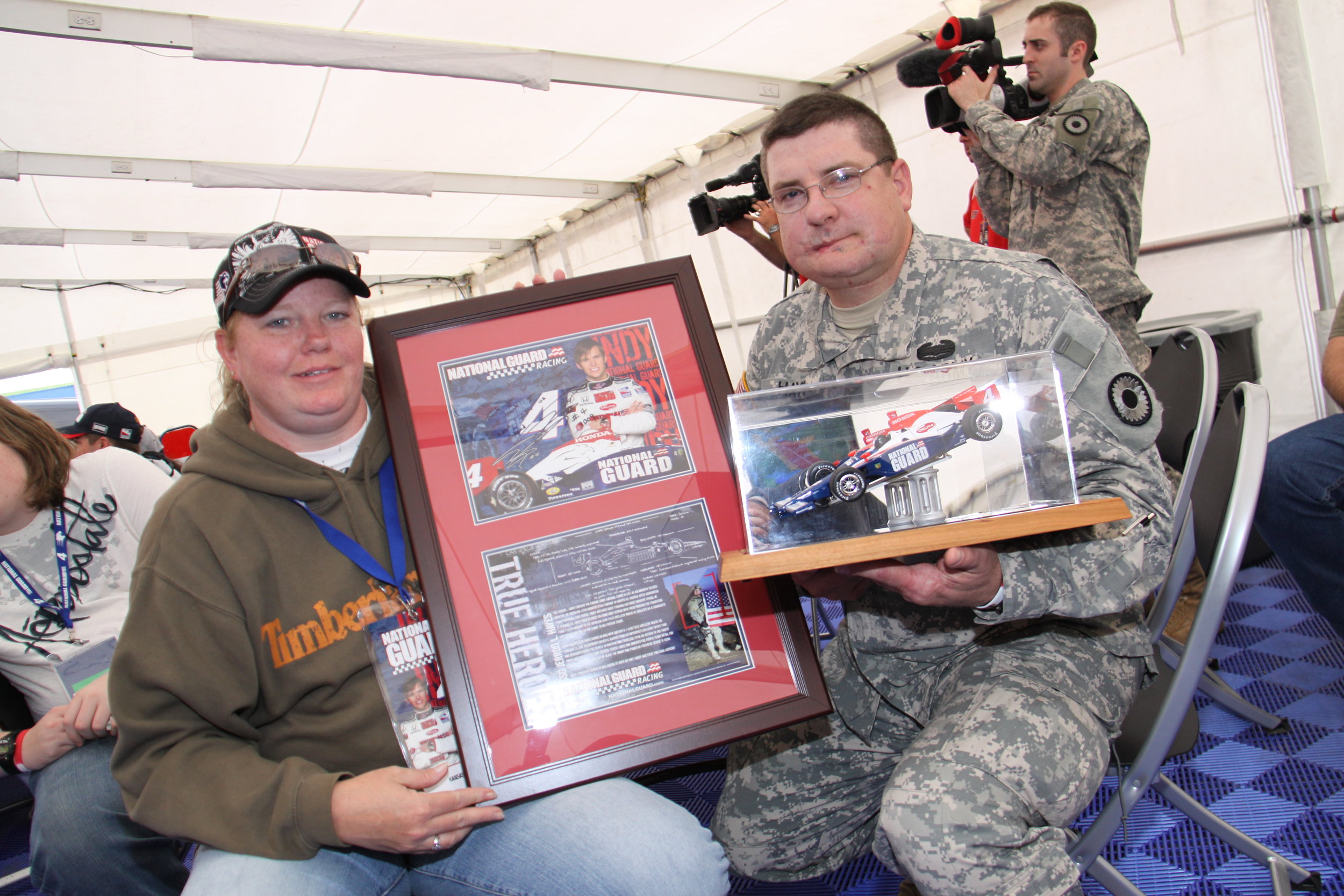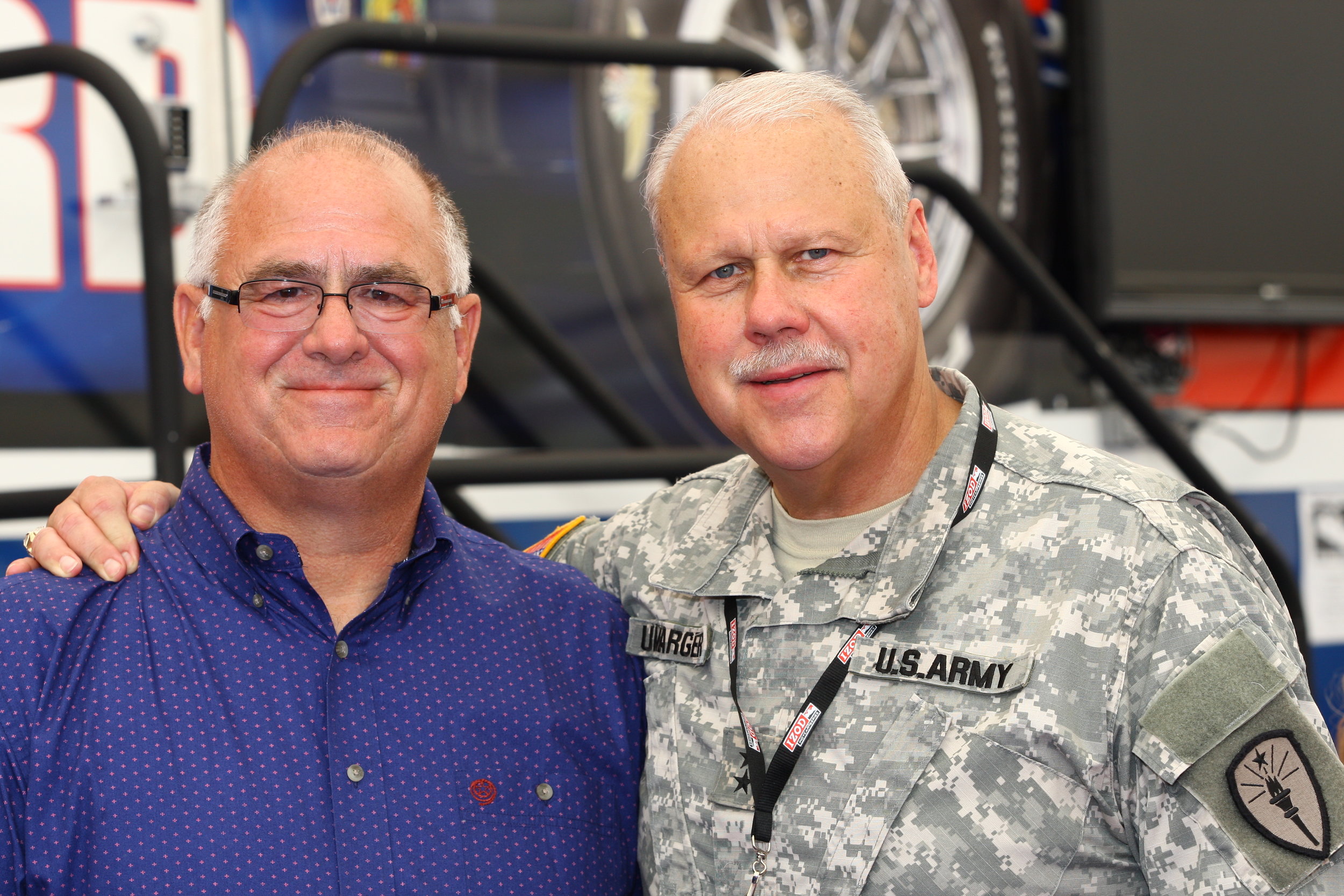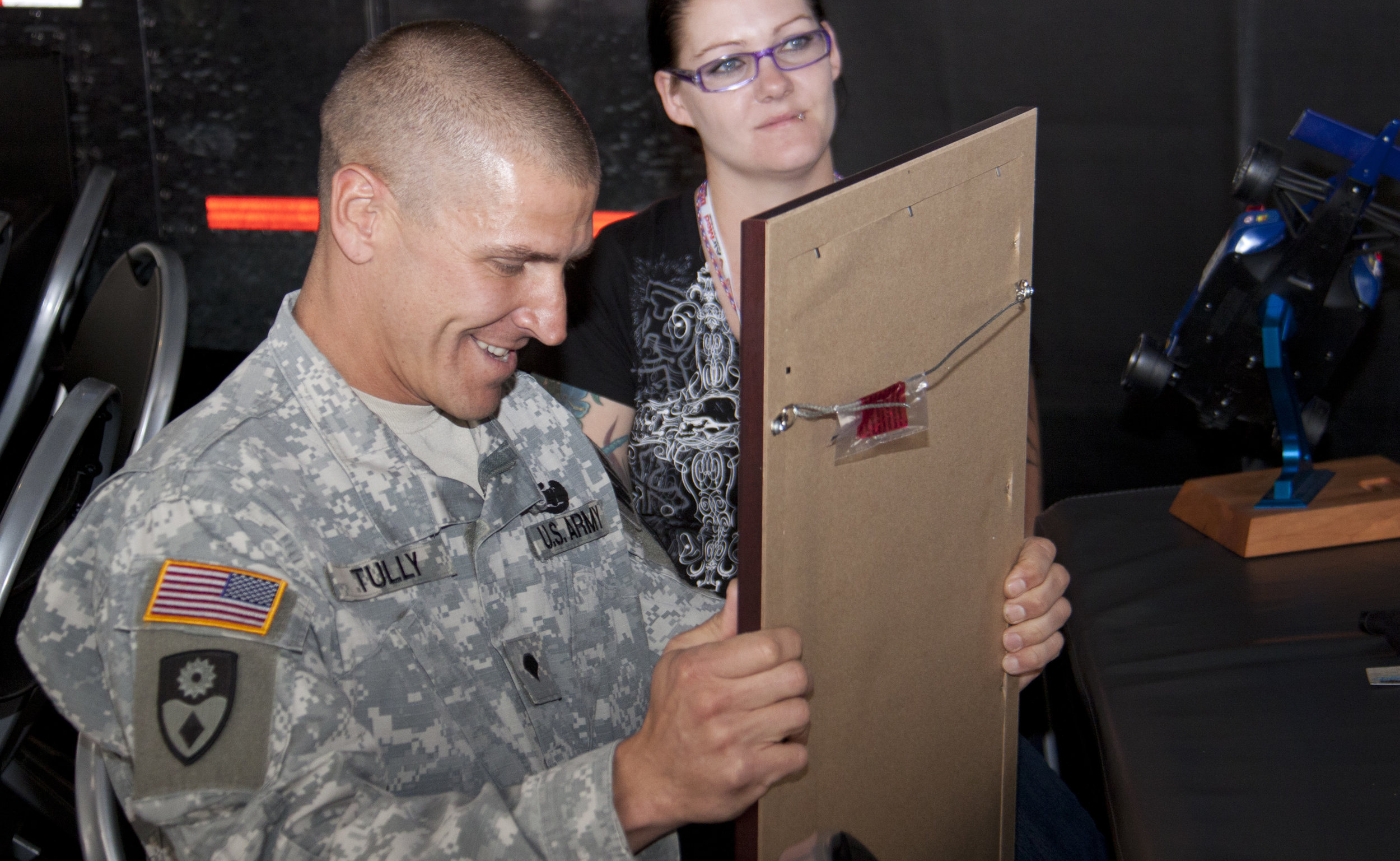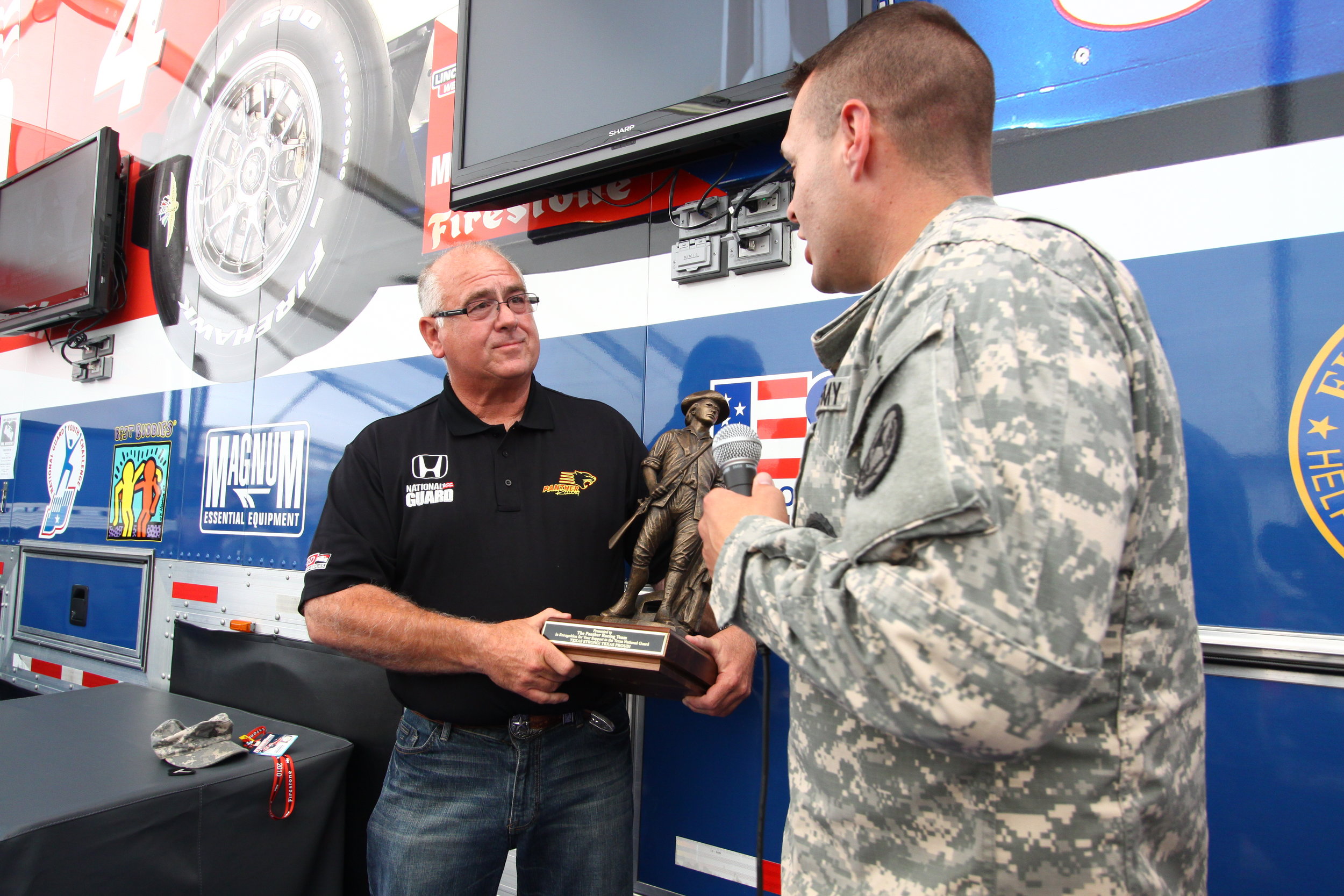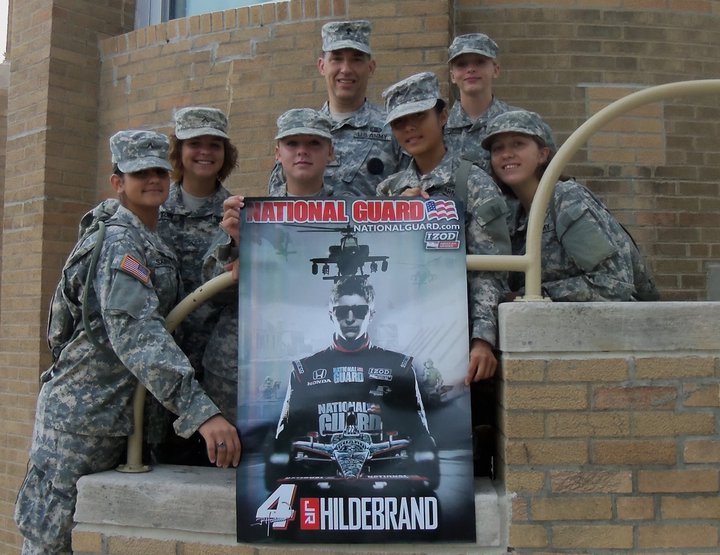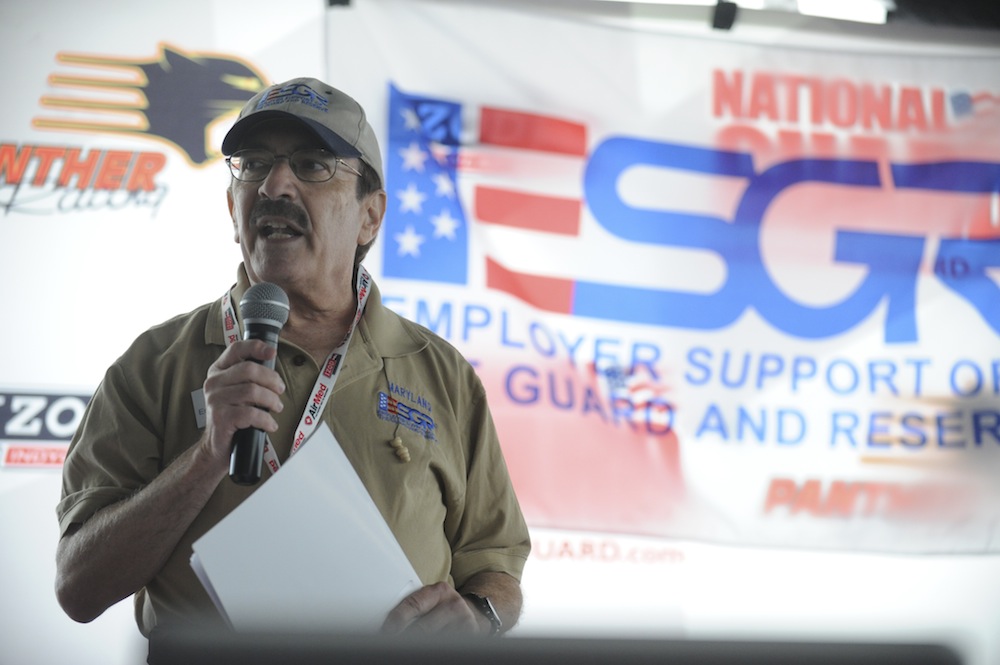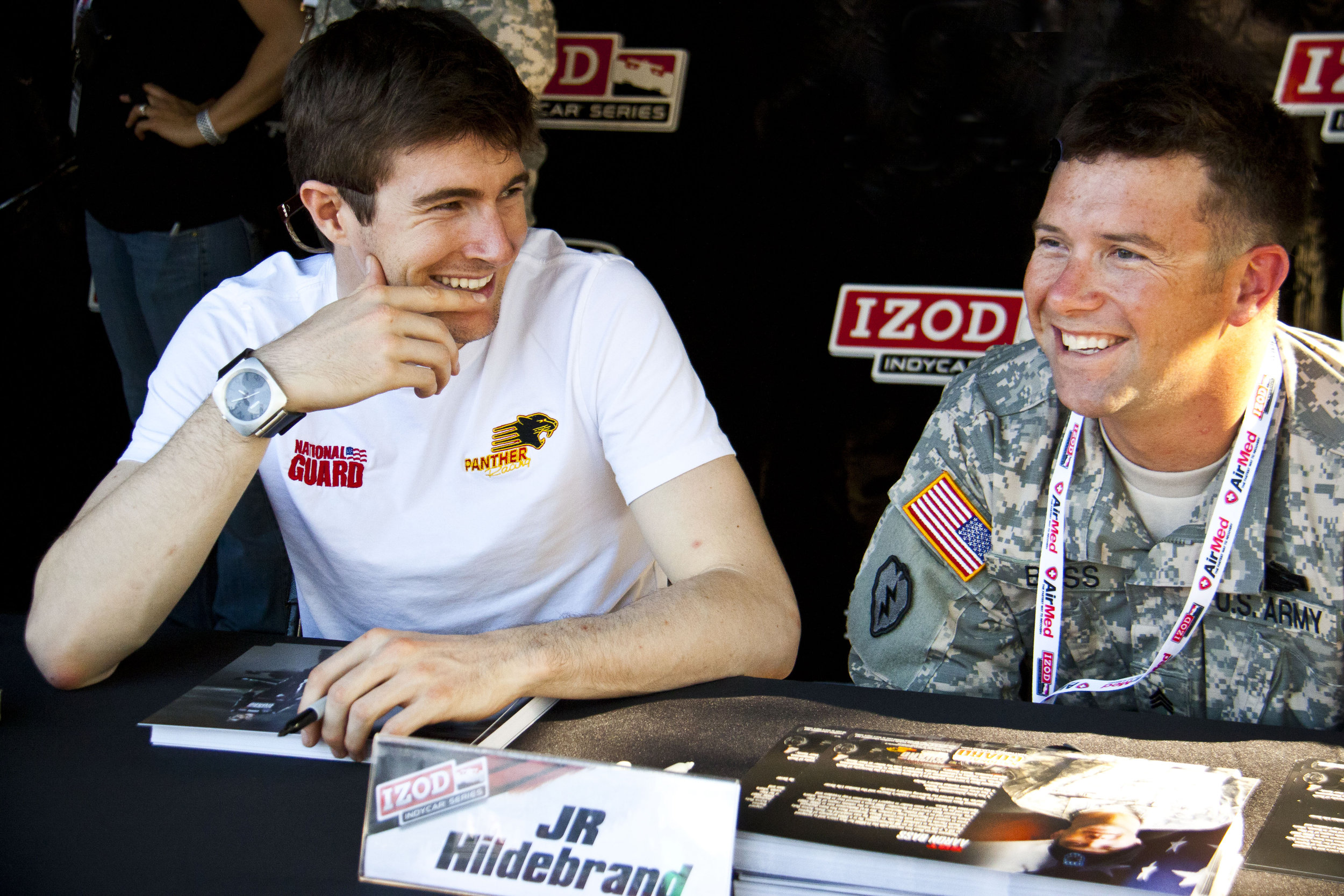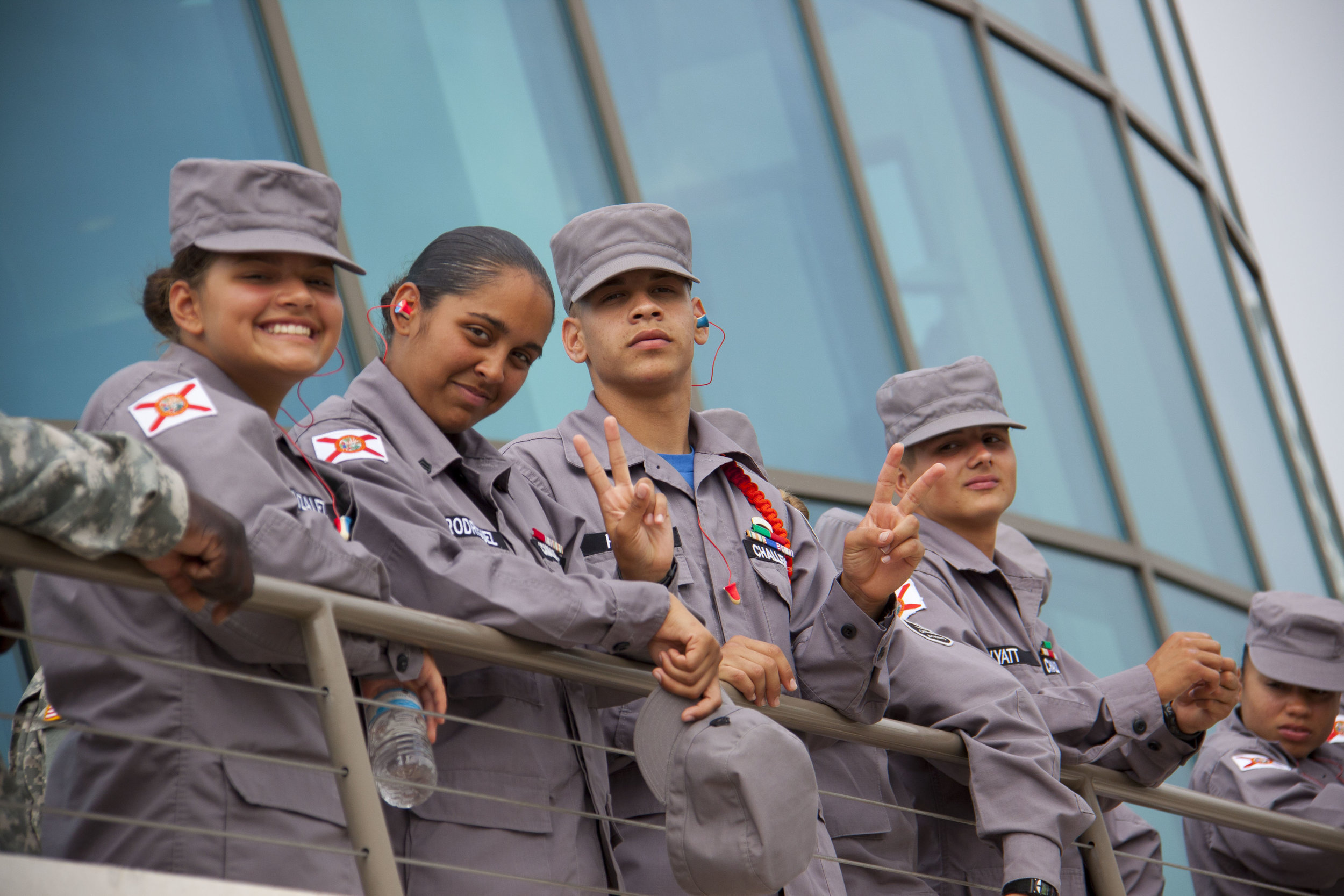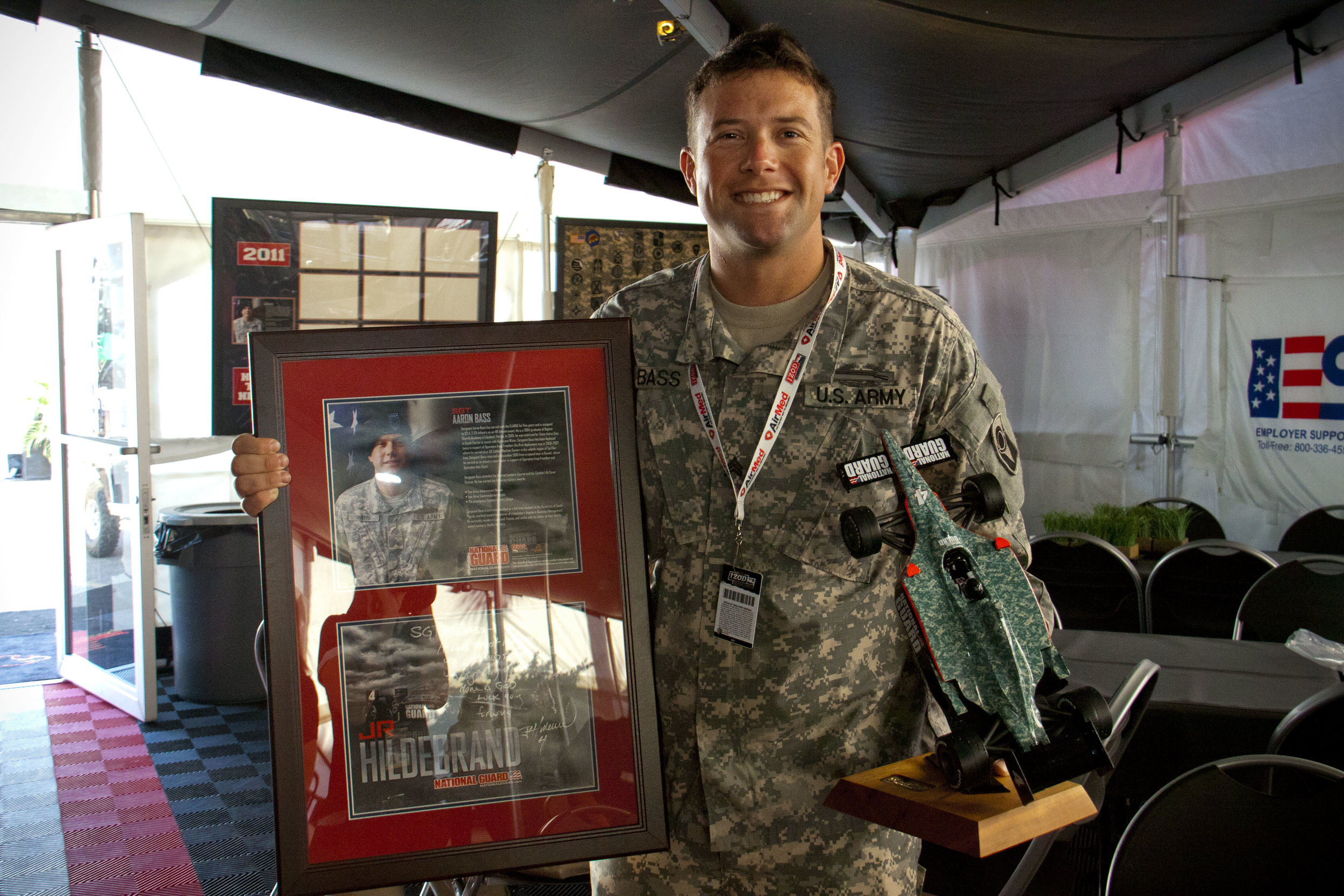Veterans Day Tribute: More Than Just Heroes in Uniform
/By Mike Kitchel
I’ve been around for more than 30 Veterans Days, and probably let most of them pass without much notice. I’m sure somewhere in the back of my head I understood what Veterans Day was all about, but I never gave it the respect it has earned. This week I started thinking how much my perspective has changed – having spent a better part of the last five years working on an IndyCar dressed in camouflage, and interacting daily with people wearing the uniform that symbolizes the importance of what today really means.
The offseason in 2007 was like many in IndyCar; a year had flown by at 230 mph, another championship had been celebrated and – like a lot of teams – we’re back to wearing suits and ties in board rooms, presenting business executives with the laundry list of advantages that come with motorsports sponsorship. Somewhere along the way that offseason, the National Guard started to explore expanding their involvement in motorsports into the IndyCar Series. And by the time engines were fired on the 2008 season, our No. 4 car was painted red, white and blue and the corporate executives that once filled our hospitality area were replaced by men and women in camouflage uniforms.
In Panther’s five-year partnership with the National Guard we’ve met thousands of Soldiers. We’ve been to Army Guard bases and Air Guard bases. We’ve had meetings in the Pentagon, the US Capital and even the White House. We’ve met Soldiers the minute they’ve stepped back onto American soil after a year at War. We’ve seen them the minute before they left. We’ve watched their families say hello and wave goodbye, and cried shamelessly from the sidelines. We’ve been in VA Hospital rooms from Tampa Bay to Palo Alto and seemingly everywhere in between. We’ve met Soldiers who have lost arms and Soldiers who have lost legs. We’ve met Soldiers who have lost both.
We’ve met families who have lost a lot more than that.
At Texas one year we finished tenth in a race where I was pretty certain we should have finished fifth. I ripped off my headset in frustration. I punched the side of the timing stand. And as I went to storm off I saw a Soldier we were hosting that weekend, good friend SPC Joey Paulk, who had been badly burned – nearly beyond recognition – in an explosion and fuel fire while serving in Afghanistan. The details of his injuries and the road map to his recovery would bring the hardest of men to tears. But tonight at Texas Motor Speedway, he was smiling and laughing, visibly in awe of just being able to stand there and watch an IndyCar race live from pit lane. I’m not sure perspective has ever landed a better shot on my chin.
As we returned home, our team owner John Barnes received a thank you letter from Joey: “I haven’t been this happy or excited about anything in a long time,” it read. “You have put happiness and excitement back into my life.” Since then Joey’s been featured in every news outlet from People Magazine to the New York Times, proving to other injured Soldiers that the road to recovery has a light at the end of it.
Remind me again what it was I was so pissed off about after that Texas race?
Last week I went to a ceremony for my friend LTC Shawn Gardner, the former Public Affairs Officer for the Indiana National Guard, who received a well-deserved promotion to Lieutenant Colonel. I’ve worked closely with Shawn for years – organizing everything from press conferences and base visits to photo shoots and helicopter rides. During his ceremony, I learned parts of his military history he’d never volunteered; stories of training at Fort Bragg, about being a Ranger who could rappel out of a Blackhawk helicopter while shooting the eye out of a needle, about his deployment to fight the war, and all those long nights he’d left his wife and two kids at home while he was gone.
Less than a month before, he had invited me to an Indianapolis Colts game where he was meeting with a Colts team official to discuss their partnership with the Indiana National Guard. To make a long story short, the Colts have a motorcycle with a side-car that leads the team onto to field at the start of the games. Shawn’s friend with the Colts gave him a pass to ride in the side-car of that motorcycle as it led the team through the smoke and pyrotechnics and onto the football field – to be greeted with the roar of 65,000 screaming NFL fans.
Shawn took the pass, and handed it to me. He never hesitated. My attempts to give it back to him were futile. His decision was not negotiable. The ride was mine.
“There are lot of people wearing this uniform,” Shawn explained. “Who don’t have the opportunity to ride in that bike onto the field. I don’t want one of them to see me doing it and think I’m taking advantage of my position here.”
When you talk about Veterans, you can’t avoid that minefield of clichés: They’re heroes, selfless, noble, courageous, fearless, they do what they do so we can roam this country freely, and they put service to their Nation above what’s good for themselves. They deliver on every adjective. Of all the injured Soldiers we’ve visited in the hospital, do you know what the No. 1 complaint is – across the board – amongst those wounded warriors? That they’re stuck in that hospital room and can’t get back overseas fast enough to help their comrades. Soldiers who are missing limbs are pissed they can’t get back into the very battle that crippled them, because they feel an obligation to help and protect their friends.
We met a Soldier at Walter Reed Hospital two years ago who was missing both legs. He told us about the IED blast that injured many Soldiers in his command. Shortly after the explosion he regained his senses and, realizing both legs were in bad shape, quickly found two tourniquets and tied them around his thighs. It wasn’t just to salvage what was left of his legs or to save his own life. He had morphine in his bag, but he didn’t use it. At least not on himself. Because in that dire moment, it wasn’t about him at all.
“I was the medic,” he explained. “Lots of our guys were hurt worse than me. It was my job to help them.”
At Mid-Ohio this season Ohio National Guard Adjutant General Deborah Ashenhurst told us the story of SFC Ty Henery, who was our team’s Hometown Hero for that weekend. He was serving in northern Afghanistan, when the small group he was in got ambushed. One of his buddies, MSG Doug Reed, got shot and was hit so badly it was quickly determined he probably wasn’t going to make it. The team knew they had to get Reed out of there immediately and to the nearest surgical team. As the Soldiers evacuated, only one of their Hummers was operable, and there wasn’t room inside the vehicle for the wounded MSG Reed. The Soldiers realized they’d have to transport him on the hood of their vehicle. And with enemy fire still raining down, SFC Henery, to protect his friend, laid on top of MSG Reed as they drove through the gunfire. He used his body as a shield, and returned fire on the enemies as they fled the kill zone. Under fire, SFC Henery stayed in that position for the entire six-mile ride.
As you read this, MSG Reed is sitting at home alive and well with his family.
I haven’t written anything you haven’t heard a thousand times before. Please forgive me, but this is the only way I know how to say Thank You: To our ancestors who put down the pitchfork and picked up a rifle to create this great Nation. To those who fought to free slaves. To our great-grandfathers who turned concentration camps into tourist attractions. To everybody who lent much more than a hand before, during and after 9/11. To every man and women in uniform who has ever responded to a flood, fire, crash, riot, and every other tragedy that’s gone unseen. And to every Veteran that helped write all the pages of history that fall in-between.
Thanks to LTC Shawn Gardner for making my old dream of leading an NFL team onto the field come true. Thank you to SPC Joey Paulk for kicking adversity in the ass, and showing us what a real comeback is all about. Thank you to SFC Henery for proving that “No Man Left Behind” isn’t just a cute catch phrase. Thank you to the medic at Walter Reed Hospital whose disregard for his own life saved so many others. And thank you to every other Soldier I’ll never meet for being “Always Ready, Always There.”
I was never brave enough to wear that uniform.
Thank you to every Veteran that was.
Photo Gallery
